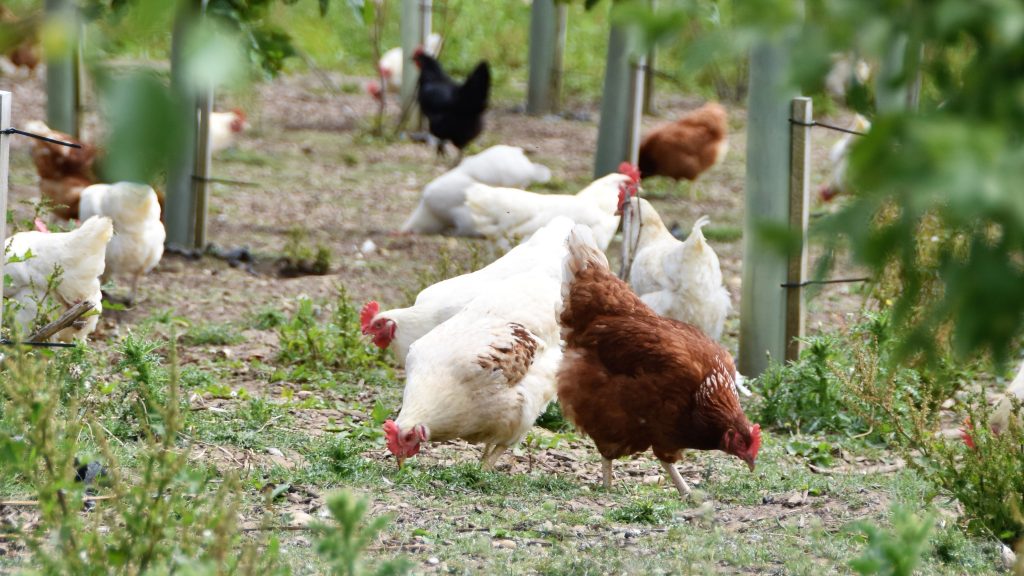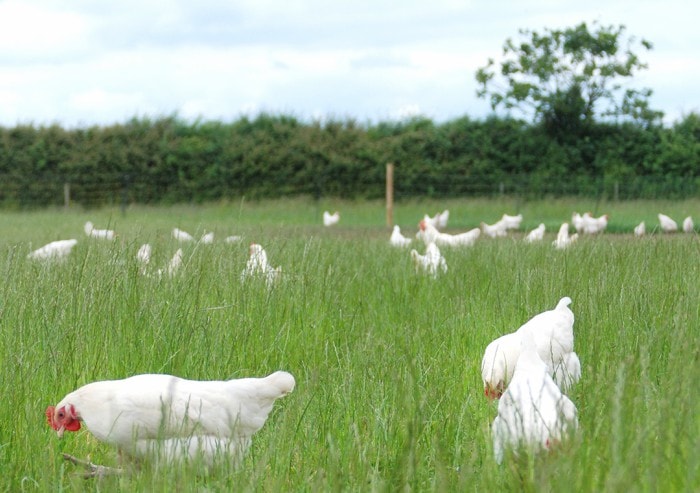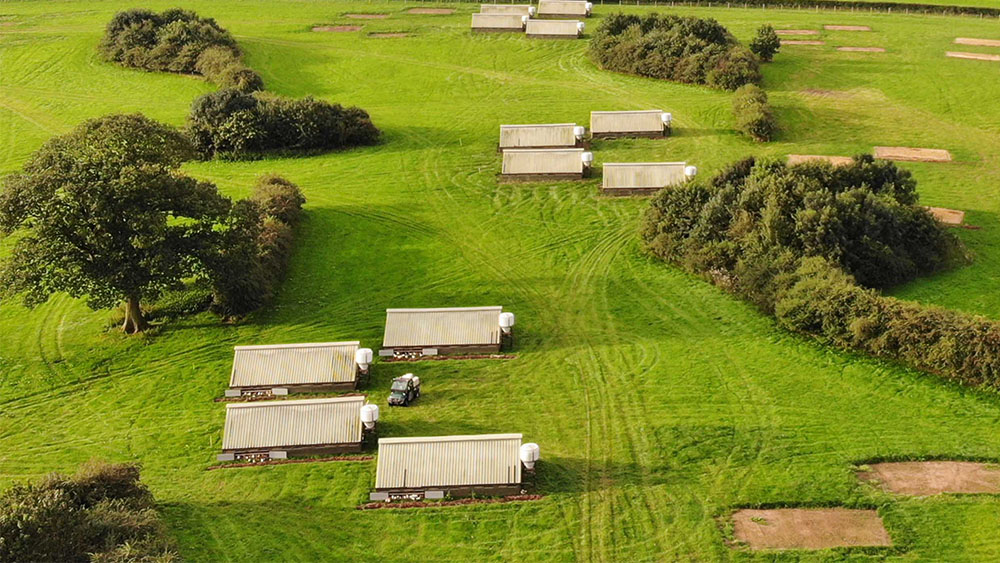
STORIES · 20.06.20
Farming | Mindful Living
Animal welfare is at the heart of everything we do at Daylesford and it has always been our highest priority to ensure that our animals live a happy life on the farm. Sadly, for most of the hens and chickens reared in the UK this is not the norm. Chicken is now the nation’s meat of choice and the seemingly inexhaustible demand for it has pushed intensive farming of chickens to a terrifying high – fewer than 5 per cent of birds are reared in a free-range or organic system.
Unlike larger animals, hens have simple needs. If they have access to plenty of sunlight and space and are free of stress, hens will lay. We now have five breeds of hens at Daylesford, each with their distinctive looks and personality. A traditional British breed, the Cotswold Legbars are famous for their beautiful pastel-coloured eggshells, which range from a creamy, very pale blue to a light green. Legbar hens are a minority breed in the UK so, I’m proud to be supporting their survival. They are a littler shyer than their neighbours, the Silver Links and the Amber Stars. These girls have creamy white features and striking red combs. They are nosy hens who happily greet visitors.
When I visit the hens at Daylesford, they are curious and confident. I truly believe the happier the chicken, the more flavoursome and nutritious their eggs will be. One of our core beliefs at Daylesford is that if you nurture nature it will give back to you and our hens produce rich organic eggs with bright golden yolks and a delicious flavour.
Our hens enjoy a varied, organic, forage-based diet. They are truly free-range animals, able to wander where they like, out of their chicken houses and into the field to search for insects and seeds in the grass. When they devour all the vegetation, and the patches of green disappear, we move the chicken houses into a different field. Our hens usually stay with us for up to two years before they are taken in by the British Hen Welfare Trust and rehomed, hopefully with a family who is looking to adopt some hens for their garden.

On our farm in Staffordshire, we also rear chickens for the table and are particularly proud of the story there as we believe they have quite a unique situation. The chickens do not get shut up at night, which leaves them completely free to range wherever they wish in the undergrowth, bushes, trees or in their coops. This is all thanks to an investment in an electric perimeter fence that encloses the whole site – some 80 acres – to keep the foxes and badgers out. It means the birds can enjoy every daylight hour to roam and forage and this is how they would behave naturally in the wild.
This is added to the fact that we are able to own and be accountable for the welfare of our chickens from day 1. Daylesford owns its organic parent flock of hens. These hens lay the eggs that hatch into chicks and become the chickens we sell for the table after they have been processed on site in our organic abattoir. It means that our chickens are organic from birth – there is no conversion process – and to our knowledge Daylesford is the only farm to do this.
One of the challenges facing so many farmers today is that chickens are at risk of developing health problems. Newborn chicks are very fragile at birth and the first 24 hours of their lives are very important in determining whether they will go on to have a healthy future. Having our own hatchery allows our team to monitor our chicks’ births carefully to guarantee the safest conditions and highest standards of welfare.
For hens and chickens in intensive systems, the situation is very different. Overcrowding means disease can easily spread. And by being kept indoors and with no access to natural light, these chickens have weak immunity, which is counteracted with the routine use of antibiotics.
I believe that everyone should know where their food comes from. Our choices can make a difference and if we all adopt the mentality of eating less meat but better quality when we do, we can hopefully halt the demand that leads to the unethical treatment of animals in intensive systems and support farming practices that hold the animals’ wellbeing at their heart. If you would like to learn more about the impact of intensive chicken farming and how you can make a difference, you can click here.

